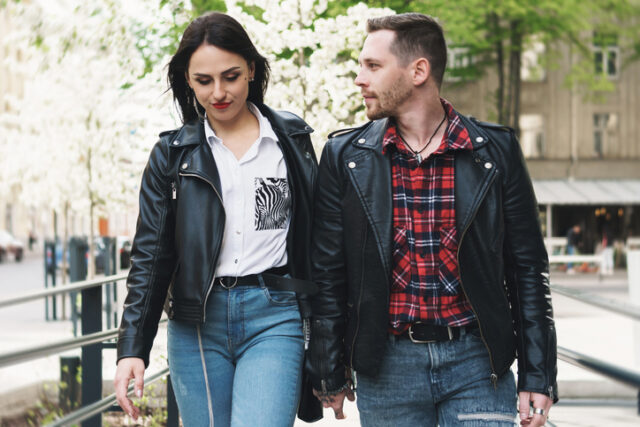There are a whole lot of people out there who are… not great at socialising.

Blame it on the fact that no one really communicates face-to-face as much anymore or society’s general self-centredness these days — it’s probably a combination of those things and more. Either way, for those whose social skills are less than impressive, they tend to say things that are rude, careless, or just totally inappropriate. Here are some of the sentences you’ll hear come from their mouths on a regular basis. Talk about awkward!
1. “You look tired.”

While they may think they’re showing concern, pointing out someone’s tired appearance can come off as insensitive. Most people don’t like being reminded they look less than their best. A better approach would be, “How are you doing today?”
2. “No offence, but…”

This is often followed by something offensive, making it a classic example of poor social skills. People say it thinking it softens the blow, but it rarely does. If you wouldn’t say it without this disclaimer, it’s better left unsaid.
3. “You’re so lucky you have [insert physical trait].”

While meant as a compliment, it can unintentionally downplay someone’s effort or make them feel objectified. For example, telling someone they’re lucky to be thin may ignore the work they put into maintaining their health. Compliments are better when they focus on effort or character.
4. “Wow, you eat a lot!”

They might think they’re making a lighthearted comment, but this can easily embarrass or offend someone. Eating habits are personal, and comments like this can make people feel self-conscious. It’s better to avoid commenting on what someone eats entirely.
5. “When are you having kids?”

This question assumes a lot about someone’s life choices or circumstances, and it can unintentionally bring up sensitive topics. People with poor social skills may see it as casual small talk, but it’s better to ask open-ended questions about their life instead.
6. “I don’t mean to brag, but…”

Statements like this usually come across as humblebrags, which can feel annoying or tone-deaf. While sharing achievements is natural, framing it this way can make it sound like fishing for validation. Instead, let accomplishments speak for themselves.
7. “Why are you still single?”

Meant as curiosity, this question can feel judgmental or intrusive. It implies there’s something wrong with being single, which is unfair. A better way to show interest in someone’s life is to ask about their hobbies, interests, or goals.
8. “You shouldn’t feel that way.”

This invalidates someone’s emotions, even if it’s intended as encouragement. It can make the person feel dismissed rather than supported. Instead, saying, “I’m sorry you feel that way,” shows understanding without judgment.
9. “At least it’s not as bad as…”

People with poor social skills may say this to try to put things into perspective, but it often minimises someone’s feelings. Comparing struggles doesn’t help; instead, acknowledging their pain with empathy works better.
10. “You’re being too sensitive.”

This dismissive comment can shut down meaningful conversations and make the other person feel invalidated. It’s better to listen and try to understand their perspective instead of labeling their feelings as excessive.
11. “I’m just being honest.”

While honesty is important, this phrase is often used to justify rudeness. People with poor social skills may not realise how their delivery affects other people. Honest feedback is more effective when it’s thoughtful and considerate.
12. “You’ve lost weight! You look great!”

Though intended as a compliment, this can make people feel like their previous appearance wasn’t acceptable. Compliments about someone’s health or happiness are more thoughtful and less likely to backfire.
13. “That’s not how I would do it.”

This can sound dismissive, even if it’s meant to offer guidance or share perspective. Unsolicited advice can come across as condescending. A more constructive way to engage is by asking, “Do you want help with that?”
14. “I’m sorry, but…”

This phrase often negates the apology that came before it, making it feel insincere. It’s better to apologise without adding a “but” to justify or explain the action. A simple, “I’m sorry,” is more effective.
15. “It’s just a joke.”

Often said to excuse an offensive or poorly received comment, this can come across as dismissive. People with poor social skills may not realise that not all jokes land the same way. A better approach is to acknowledge the mistake and apologise.
16. “Wow, you’re really quiet.”

Pointing out someone’s quietness can make them feel self-conscious, especially if they’re introverted or shy. Instead of calling attention to it, try engaging them in conversation with a kind question to make them feel included.




